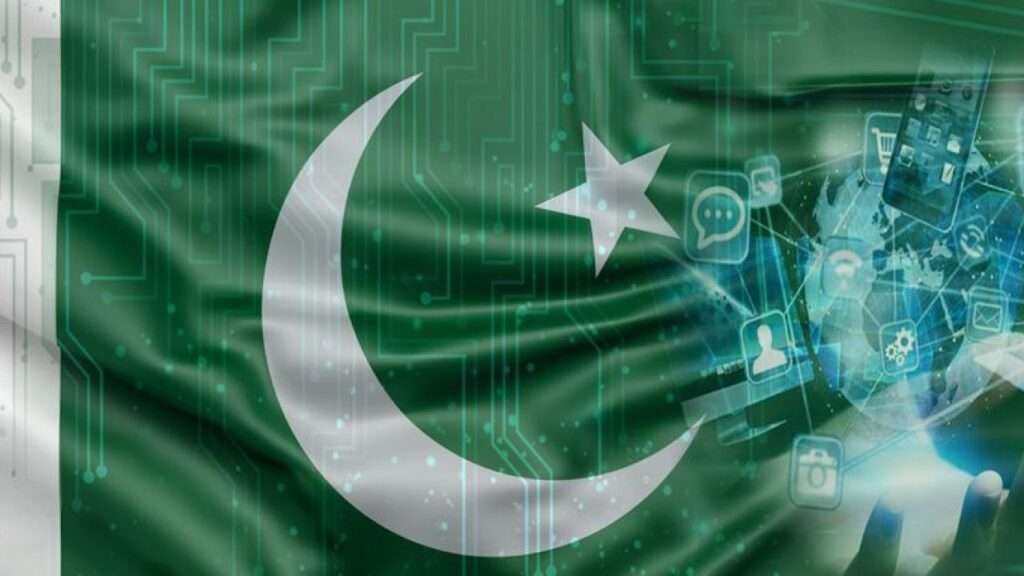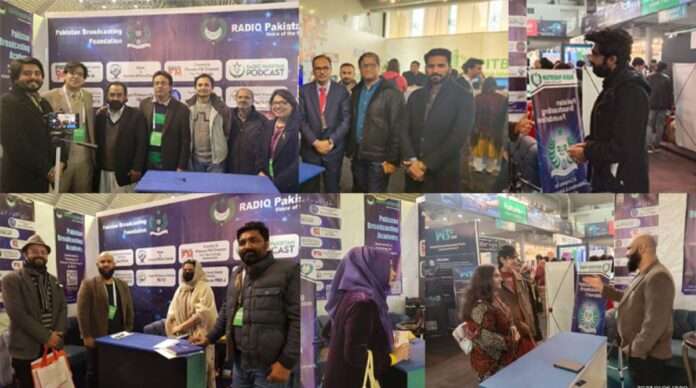Pakistan’s largest three-day Tech Conference and Expo titled “Future Fest 2023” kicked off on January 06, 2023 at the Expo Center, Lahore with the Chief Guest President Dr. Arif Alvi, delivering a virtual message, welcoming the delegates and highlighting the great investment opportunities that the budding local tech industry has to offer. Open to the public the event hosted more than 250 speakers, around 150 international guests from 15 countries, 100+ key partners and attracted more than 50,000 attendees. The world today is changing at an extraordinary rate and it has increased uncertainty on many levels. In this scenario, it is now very important to pave the way for the future of Pakistan and with this in mind, the event was held under the theme of #SaveTheFuture bringing leaders from more than 40 industries to foster discussion on the future of life itself. Entrepreneurs, decision makers, policymakers, investors, and innovators discussed aspects of the current times and how technology work to save the future.
The Global Information Technology Report (GITR) is a special project within the framework of the World Economic Forum’s Global Competitiveness and Risks Team and the Industry Partnership Programme for Information and Communication Technologies (ICT). The result of collaboration between the WEF and INSEAD, the report has been published since 2001 and measuring the drivers of the ICT revolution using the Networked Readiness Index. For each of the 143 economies covered, it allows areas of priority to be identified to more fully leverage ICTs for development. In the 2013 GITR, Pakistan ranked a low 105 out of 144 countries in terms of overall networked readiness. Finland was ranked highest at number one, while Burundi was lowest at 144. This report accesses how countries harness information and communication technologies (ICT) to deliver competitiveness and well-being. Unfortunately, Pakistan has been lagging behind in these rankings, however in the report for 2015 Pakistan obtained the 97th spot, managing to crawl into the top hundred. This ranking does reflect on the growing trend of technology awareness in Pakistan. In order to better leverage ICTs for development, a higher level of preparedness and better infrastructure and access are needed for which government leadership and vision are critical. The report also mentions about the digital divides that exist within countries considering that even in the advanced economies, only certain segments of the population are benefiting from ICTs with many left behind because of their age, limited digital literacy, lack of access, or remoteness.
In Pakistan, the IT sector went through a rough couple of years, despite the industry’s striking overall growth in the past 10 to 15 years. Despite hiccups, there has been a robust growth of IT and IT-enabled (ITeS) remittances in the past five years. Google had recognised Pakistan, as far back as 2018. for rapidly turning into a “digital-first country” and at this time, Pakistan had the fourth-largest growing freelancers’ market globally. Pakistan is known for software development, business process outsourcing (BPO) and freelancing of IT-related services. The time is ripe for Pakistan to prove its mettle internationally by leading what could be described as the fourth industrial revolution in the field of IT. Robust restructuring of IT and other related sectors and their inclusivity in everyday governance will pave the way for not just modern governance but also a financially strong country.
The IT industry contributes around seven percent of Pakistan’s GDP and employs hundreds of thousands of professionals who work in different areas such as banking, telecommunications, healthcare, education, etc. According to statistics published by the State Bank of Pakistan Pakistan’s IT exports during fiscal year 2020/21 increased by 47.4 percent, and crossed $2 billion milestone for the first time in the country’s history; whereas, in fiscal year 2019/20, the exports were $1.44 billion. Pakistan’s IT industry is growing at an exceptionally fast rate because of some key factors including competent youth coming up with innovative ideas. Outsourcing services is another reason because it increases revenue and employment chances.
On the plus side, statistics have identified that Pakistan, which has about 60 percent of its over 200 million population in the 15 to 29 age group, represents an enormous human and knowledge capital. The country has greater than 2000 IT firms and call centers and the number is growing yearly. It is also identified that the country has also greater than 300,000 English-speaking IT professionals with expertise in current and emerging IT products and technologies, 13 software technology parks, and more than 20,000 IT graduates and engineers being produced each year coupled with a rising startup culture.

In accordance with Pakistan Vision 2025 and the Digital Policy of Pakistan 2018, experts recorded that the ICT industry size is targeted to reach $20 billion by 2025. No doubt, the country has not only braved the fatal strains of the Covid-19 pandemic but has also emerged more formidable by the turbulent year-and-a half. Both the ICT sector and the regulator worked as enablers alongside the government of Pakistan, facilitating the management of Covid-19 and supporting economic recovery.
Information technology has assumed a central enabling role in the emerging dynamics of a knowledge society and knowledge economy. It is a key lever of economic development. Pakistan’s Information Technology (IT) sector is carving a differentiated position as the preferred source for software development, BPO and freelancing. Pakistan was ranked at number four for freelance development in the world and IT exports have increased 70% during the last three years. Digital growth in Pakistan is going through a rapid evolution. The IT/ITeS sector is one of the fastest growing sectors of Pakistan contributing about 1% of GDP of Pakistan at about 3.5 billion USD. It has doubled in the past four years and experts expect it to grow a further 100% in the next two to four years to $7 billion.
In accordance with Pakistan Vision 2025 and the Digital policy of Pakistan 2018, the ICT industry size is targeted to reach $20 billion by 2025. Today, most importantly the security situation of Pakistan has improved. Startups like careem, daraz, zameen.com, rozee.pk and their success is bringing investment into Pakistan as evident from the recent acquisition of daraz and easypaisa by AliBaba. Traditional investors from other Pakistani sectors like textile, fertilizers are also taking special interest in the startup ecosystem.
Many south Asian nations have become expensive in IT outsourcing, finding it difficult to compete in technological areas like artificial intelligence, cyber security, automation, etc. Despite Pakistan not yet capping its potential to become a major player in the technology industry, one of the key ways in it can develop its technology sector is by focusing on technology startups and the software industry. Startups can bring new and innovative ideas to the market, and they can play a key role in driving economic growth and development. By supporting and nurturing tech startups, Pakistan can create a thriving ecosystem that will drive the country’s technological advancement.
Private Business incubators support the development of start-ups by providing them with advisory and administrative support services. In Pakistan, the trend of establishing incubation centers and accelerators is on the rise. Every year approximately 10,000 IT graduates are produced and there is a real entrepreneurial spirit in many who look to start their own business.
The software industry is another area that holds great promise for Pakistan. With a strong pool of talented developers and a growing market for software products and services, Pakistan is well-positioned to become a major player in this sector. By investing in the development of its software industry, Pakistan can create high-paying jobs and generate significant revenue for the country.




